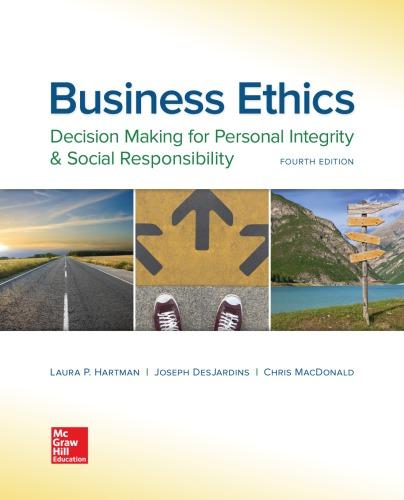One of the leading figures in the Enron debacle was company founder Kenneth Lay, who died in
Question:
One of the leading figures in the Enron debacle was company founder Kenneth Lay, who died in 2006 after his conviction for fraud and conspiracy but before he began serving his sentence. Prior to the events that led to the trial and conviction, Lay was viewed in Houston as one of its “genuine heroes” and Enron was a “shining beacon”
according to a professor at Rice University in Houston. The Houston Astros’s field was named after Enron when the company gave the Astros a large grant. Enron also gave money to local organizations such as the ballet and national organizations based in Houston such as United Way. The Lays individually supported Houston’s opera and ballet, its Holocaust Museum, the University of Texas MD Anderson Cancer Center, and other charitable organizations. If you were on the jury, would any of this information be relevant to your decision about Kenneth Lay’s guilt or innocence? If your jury had determined that Lay was guilty, would any of this information be relevant to your decision about the sentence you would then impose? Defend your decision from an ethical perspective.
Step by Step Answer:

Business Ethics: Decision Making For Personal Integrity & Social Responsibility
ISBN: 211177
4th Edition
Authors: Laura Hartman, Joseph DesJardins, Chris MacDonald






